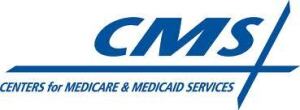by
Loren Bonner, DOTmed News Online Editor | May 09, 2013
If you're an uninsured person living in the Bronx, the northernmost part of New York City, you might see a bill for $7,044 if you were treated for chronic obstructive pulmonary disease at Lincoln Medical and Mental Health Center. But right across the river, roughly 30 miles south in New Jersey, that same procedure at a different hospital could cost you $99,690 without insurance.
According to new data released from the Centers for Medicare and Medicaid Services, this variation is happening all across the country in hospitals. Billing data from CMS, released to the public for the first time on Wednesday, shows that hospital charges vary widely for the same procedure from hospital to hospital across 50 states.
"What surprised us when we started the project is the vast variation in charges. Charges within a hospital compared to Medicare for a given procedure and charges across hospitals throughout the country and within a geographic marketplace," said Jonathan Blum, acting principal deputy administrator for CMS, during a call with reporters.




Ad Statistics
Times Displayed: 30380
Times Visited: 760 Stay up to date with the latest training to fix, troubleshoot, and maintain your critical care devices. GE HealthCare offers multiple training formats to empower teams and expand knowledge, saving you time and money
On its website, CMS has made hospital charge data available from 3,300 hospitals for the top 100 most common procedures.
Although Medicare doesn't use this information, it's data that CMS has collected over the years.
"From our perspective, we have a mission and a goal that was created by the Affordable Care Act to make the health care marketplace more transparent," said Blum.
When hospitals come up with procedure pricing they create what is called a charge master list, or a sticker price for procedures. Since CMS uses a standardized system to reimburse hospitals and private insurance companies negotiate their rates for procedures directly with the hospitals, these billing prices mostly affect people who pay out of pocket and are not covered by Medicare or private insurance.
But this is not to say that there is not a trickle down effect, according to CMS. Each insurance company negotiates differently with a hospital for pricing and in many cases they may take the charge master rate and negotiate down from that.
Experts say the data could likely bring more intensity to the debate over how hospitals come up with their billing information in the first place. A recent Time Magazine article by Steven Brill has drawn a lot of attention to the issue already and was part of the reason CMS decided to release the data at this time. However, for the most part, Blum said the health care reform law has created most of the momentum for CMS to make health care pricing more transparent.
"Now it's free of charge to all stakeholders and researchers to ask and understand why the health care marketplace works the way it does," he said.
Some experts have speculated that the variations could be a result of some hospitals treating sicker patients or being categorized as a teaching hospital. But Blum said the reasons for these hypotheses driving the variation do not add up.
"The extent of variation doesn't support reasons why there is the variation," said Blum.
He said he hopes the data will get even more people questioning the way hospitals set their prices.
"[It's about] having more people have access to the data to raise policy questions and hopefully over time reform our complicated health care marketplace," he said.


Ted Huss
Varying Charges for Cash Payers at Hospitals
May 09, 2013 12:12
This is just another way hospitals compensate for costs incurred in treating non-payers and fixed reimbursement payers. The people who pay cash get "the shaft". In most businesses, they get a discount.I believe the practice has long been known as "cost shifting". Beyond the wide variation in charges, the way hospitals/providers are allowed to write off "costs" are another factor. Until patients are allowed to buy insurance globally, and providers are forced to disclose per procedure fees, this will continue. Cash patients will be forced into bankruptcy, the "poor" will continue to get free treatment, and the taxpayer will pick up the bills.
to rate and post a comment